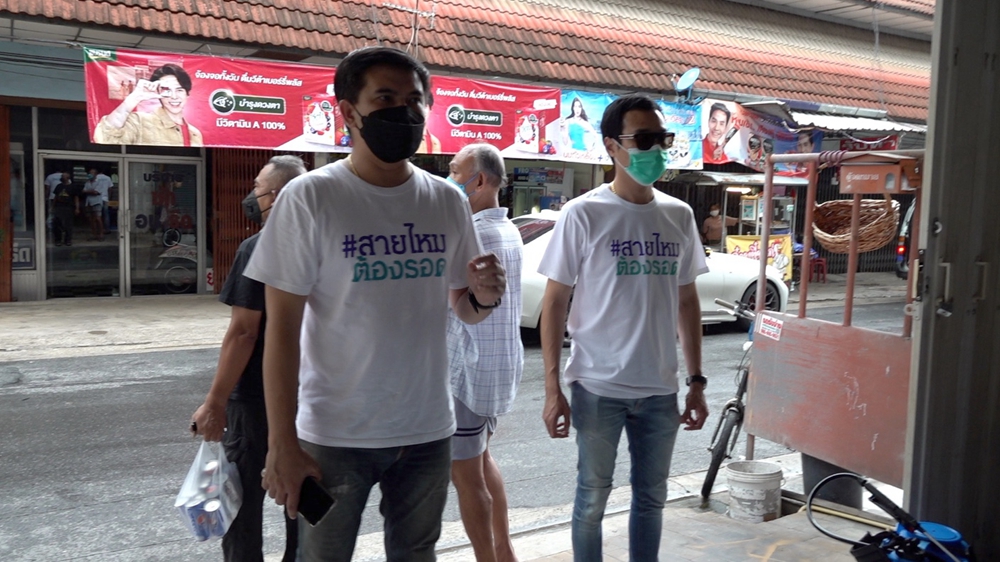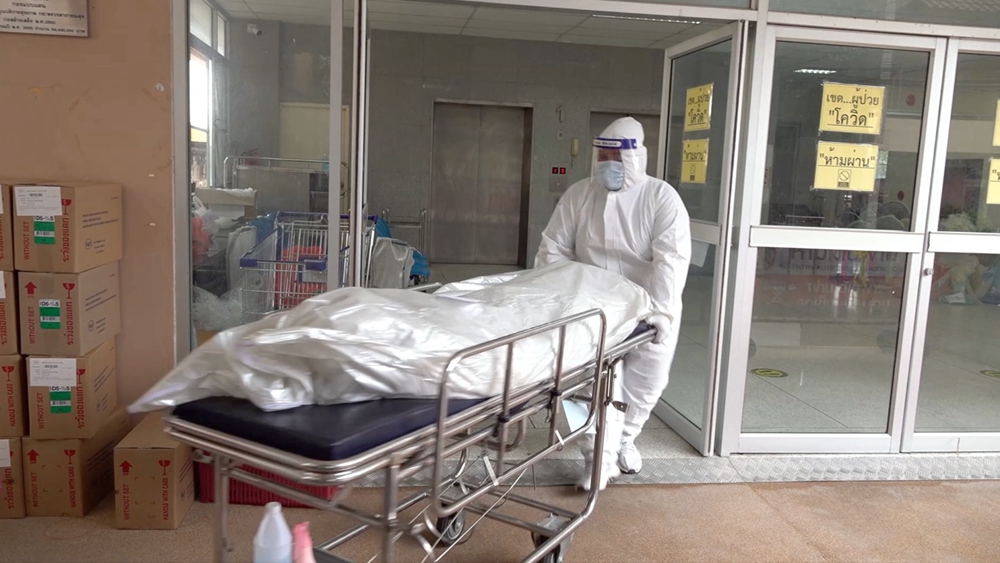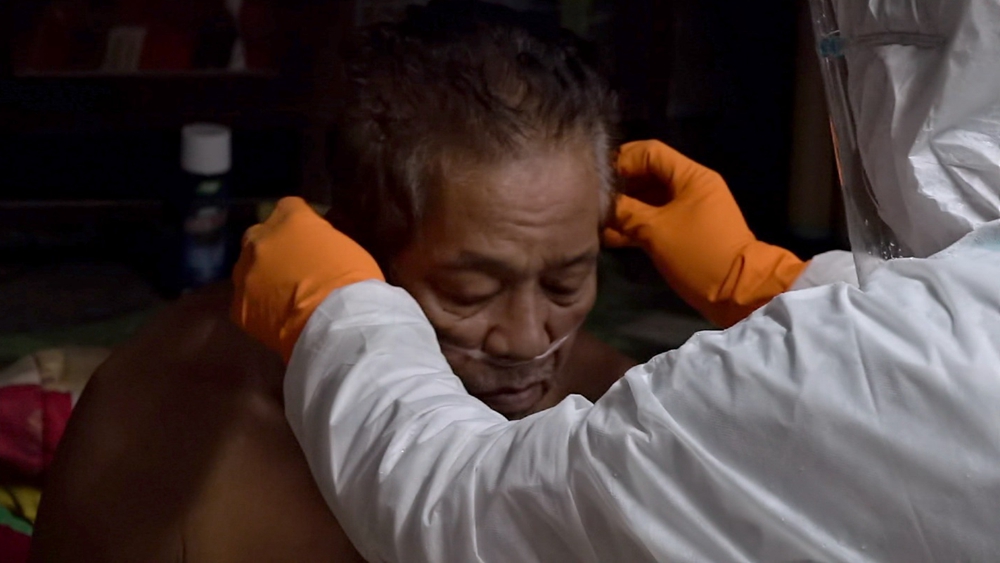
Volunteers from Samai Will Survive have been working around the clock, responding to hundreds of SOS calls daily from desperate COVID-19 patients unable to get help. /CGTN
Volunteers from Samai Will Survive have been working around the clock, responding to hundreds of SOS calls daily from desperate COVID-19 patients unable to get help. /CGTN
Ekapob Laungprasert barely sleeps at night. He barely has time to eat. His phone rings 24 hours a day with cries for help from desperate Thais begging for oxygen supplies, medicine, hospital beds – whatever he can provide.
"We get more than 200 SOS calls each day," said Ekapob, who leads a volunteer group, Samai Will Survive. What began as a small volunteer group of around five members in early 2020 is now an army of 100 ready to help people in Sai Mai district, one of Bangkok's most populous districts.
For the past couple of weeks, there's been a surge in demand for their services. Officially, over 20,000 COVID-19 cases are being reported daily. However, on the ground, this number has no meaning for Ekapob and his team as they have no time to rest.
"Right now, I'm quite certain that the minimum number of actual daily infections is well over 50,000 cases," said Ekapob.
"Those who test positive with home antigen test kits are not reflected in the daily government COVID-19 case report. From the people that contact us every day, only 20 percent of them have official reverse transcription polymerase chain reaction (RT-PCR) tests while the rest have used antigen test kits," Ekapob added.
His phone rang. It was an elderly COVID-19 positive woman whose breathing had worsened. "I can't sleep," the caller said. "I've been coughing the whole night. I have chest and stomach pain. I'm so exhausted."

A volunteer wears protective suits to collect bodies of COVID-19 victims. The bodies are taken to a temple crematory to be cremated in Bangkok, Thailand. / CGTN
A volunteer wears protective suits to collect bodies of COVID-19 victims. The bodies are taken to a temple crematory to be cremated in Bangkok, Thailand. / CGTN
Wearing personal protective equipment, Ekapob and his team reached her house within 20 minutes to deliver oxygen and much-needed reassurance.
Then they were off to the next house.
A few nights ago, he received a call from a house that is less than 2 kilometers away from a hospital. An elderly woman needed urgent help. The hospital told them they did not have beds.
The volunteer team arrived as fast as they could. But it was too late. After administering hands-only cardiopulmonary resuscitation (CPR), the elderly woman died as her daughter watched helplessly.
"This is happening because we can't find a hospital bed," her daughter cried. "How are people meant to live? I don't want to see grandpa end up like this. Please help us."
Thailand's third wave has consumed the country. Hospitals in its capital city Bangkok are so full that patients are being treated in parking lots. Many die before they see a doctor.

A coronavirus-positive elderly man of Bangkok's Sai Mai district breathes through an oxygen mask in Bangkok, Thailand. / CGTN
A coronavirus-positive elderly man of Bangkok's Sai Mai district breathes through an oxygen mask in Bangkok, Thailand. / CGTN
Hospitals, testing facilities, even crematoriums are overwhelmed. The country's vaccination drive has been slow. So far, a little over 6 percent of the population is fully protected, falling ever further behind its neighbors in inoculating the population.
Public dissatisfaction with the government's mismanagement of the COVID-19 crisis has grown in parallel with infections. Volunteers see the consequences of protests on the streets every day and every night.
And the work is taking a toll on the volunteers. For every person they respond to, there are thousands more they cannot.
Nonetheless, volunteers like Ekapob and his group are an essential safety net, gaining crucial time for both patients and a healthcare system under severe strain, doing whatever it takes to battle an unseen enemy. Their work brings critical relief to desperate families who feel they have run out of options.
The country was widely praised for its COVID-19 response last year, when it maintained one of the lowest caseloads in the world. But its defenses and resources were no match for Delta, which is now the dominant variant with more than 78 percent found in new cases in most parts of country.
"This is just the beginning. It will only get worse from here. We need to be prepared. We need to accept that this is the reality," Ekapob said.

